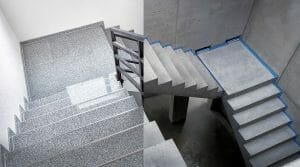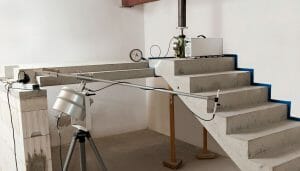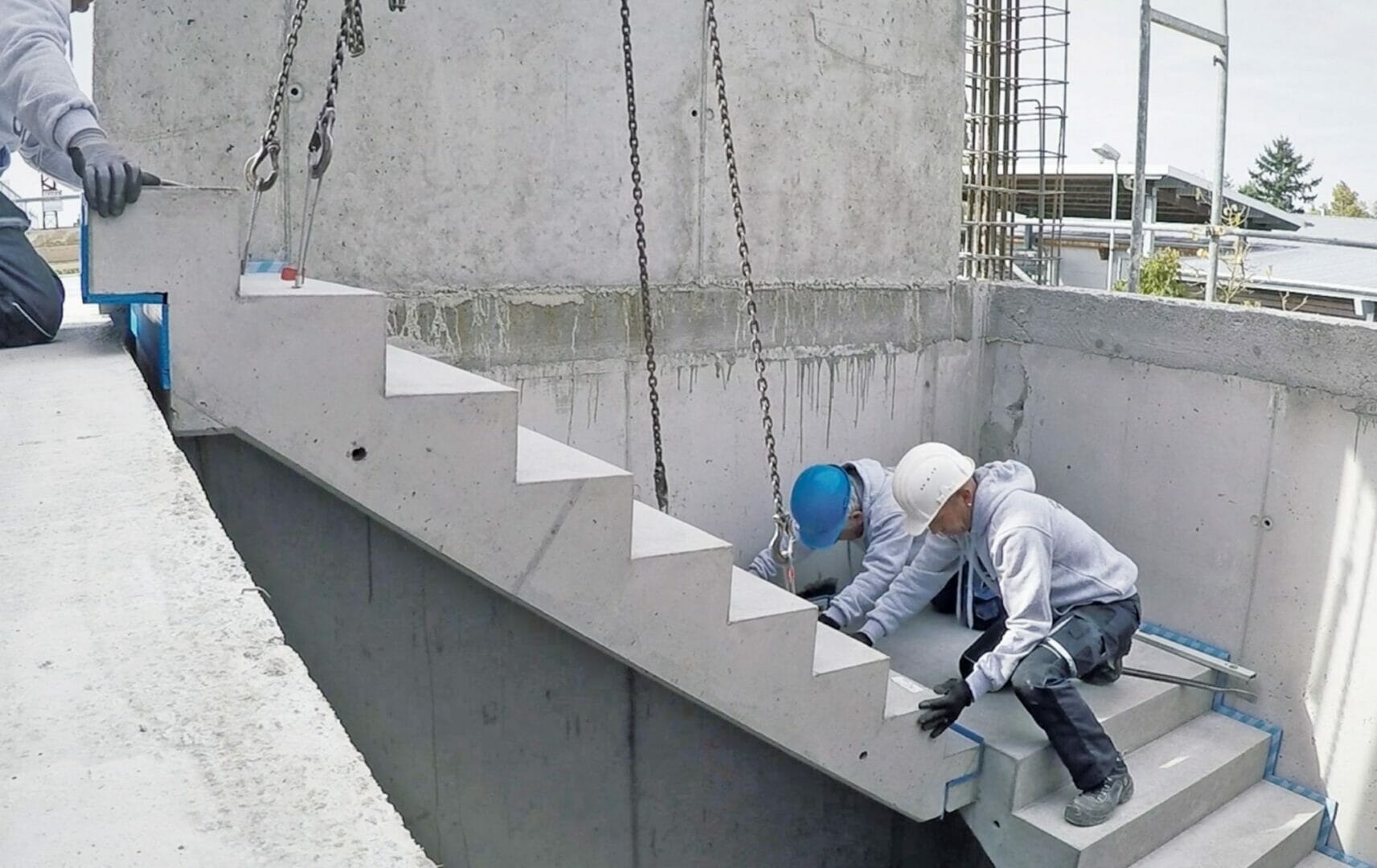
As higher density living becomes increasingly the norm, noise nuisance and its possible effect on health issues is becoming an all-important topic. One of the most invasive irritations is impact sound and Schöck has developed an innovative solution for both straight and winding staircases.
It will come as little surprise that social surveys across several European countries indicate that noise from neighbours in multi-family residential complexes causes varying degrees of annoyance. The type of noise can take various forms of course, but impact sound is particularly invasive, with footsteps on common stairs being a typical example. Health studies have looked into the different effects of ‘community noise’ on individuals. The findings are wide-ranging, but suggest that regular noise interference can result in symptoms such as sleep loss, headaches, anxiety and in some cases even an increase in the potential for aggressive behaviour. So with the move towards higher density living in many European towns and cities, appropriate acoustic performance standards are becoming more important than ever.
UK urban living dramatically on the rise
There is considerable disparity between UK mandatory acoustic standards and those in many parts of Europe. Which is possibly a result of the historical differences in dwelling types. In the UK only 14% of the population have traditionally lived in apartments, one of the lowest Euro percentages. Whereas the average for apartment living across the Euro area is 48% and in many cases higher. Over 60% in Germany for example. However, things are changing in the UK, where urban and therefore apartment living, is dramatically on the rise. Between 2002 and 2015(1) Liverpool was the fastest growing city centre, with a population increasing by 181%.
Other cities are close behind, examples being Birmingham, with a city centre growing by 163%, Leeds by 150%, Manchester 149% and Leicester 145%. In terms of sheer numbers, the fastest growing was London, but due to overall population density this amounted to a relatively low 22% increase.
Soundproofing standards are under scrutiny
With this increase in the density of residential living, noise health protection and exisiting mandatory soundproofing standards, of which impact sound is an important feature, are coming under ever-increasing scrutiny. Currently the Building Regulations Part E recommend performance standards for ‘separating walls, separating floors and stairs that have a separate function’ as being less than or equivalent to 62 dB. Bearing in mind that the smaller the value, the better the impact sound insulation, the European average for staircases is around 53 dB, in some individual cases even stricter. Which is significant when you consider that for human hearing a 10 dB difference is equivalent to twice the noise disturbance. The first ever standard in Europe to specify a test procedure for impact sound insulation elements was published in Germany in 2016. (DIN 7396). DIN 7396 specifies a test with realistic configurations and typical building loads on staircases. The weighted normalised impact sound pressure level (L‘n,w) as defined in DIN 7396 can be used as a basis for verifying acoustic insulation in buildings. In reality, during the construction process soundproofing solutions are often used that do not comply with longer term requirements. Individual elastomer supports for example, may not protect the joint areas completely, with dirt and plaster finding their way into the gaps, causing acoustic bridges.
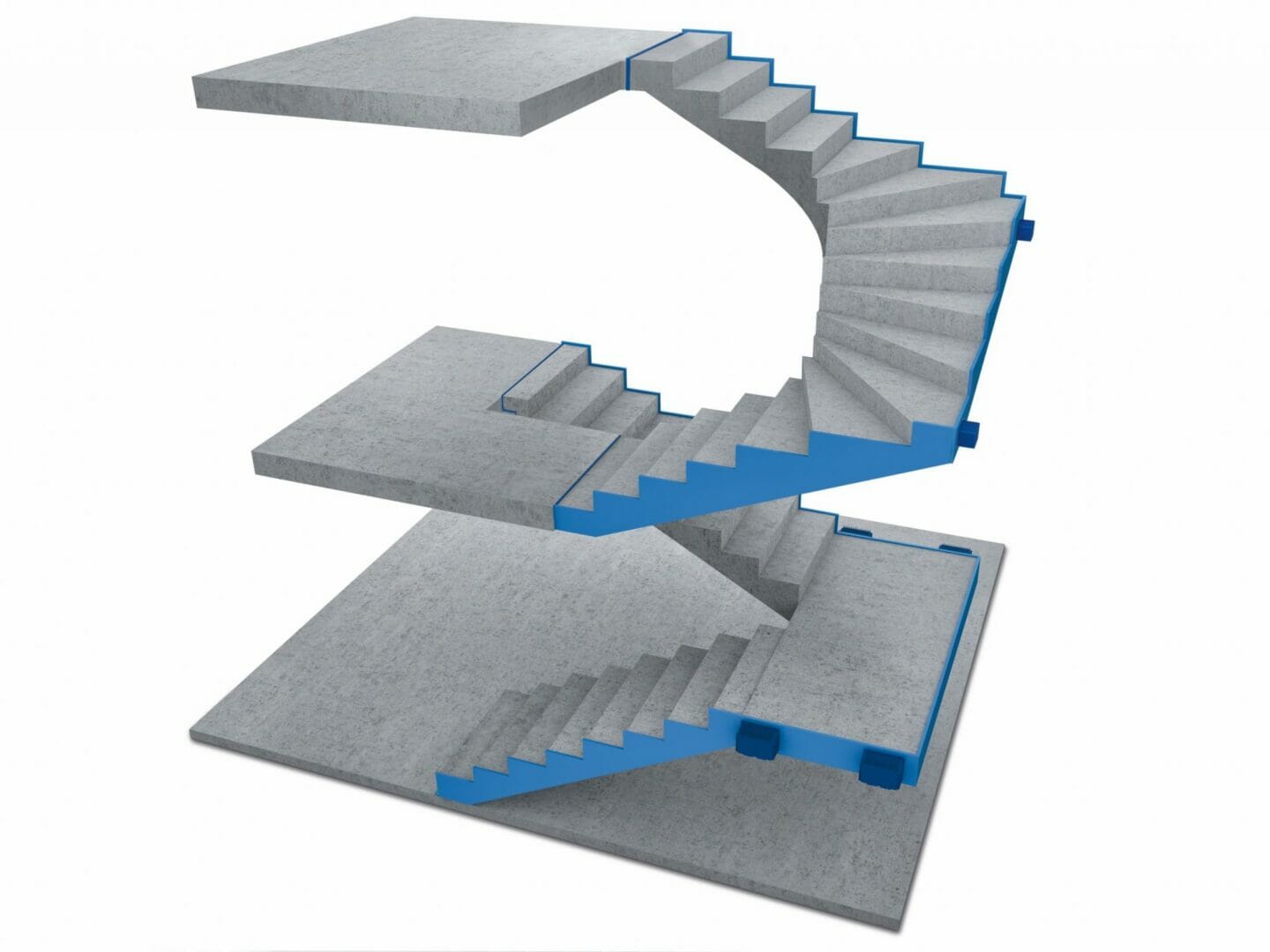
Schöck launches Tronsole
As a result Schöck, best known for its structural thermal break range, has developed an integrated impact sound insulation solution for all structural subsections on both straight and winding staircases. Known as Tronsole, this system of perfectly integrated impact soundproofing elements, combines dependable sound insulation with straightforward installation. The Schöck Tronsole system consists of seven main product types that can be
mixed and matched to form a fully integrated impact soundproof system either on-site, or in the prefabricating plant. Central to the performance of the Tronsole system is Elodur, an elastomer support formulated to ensure optimum acoustic insulation and low deflection. Compared with conventional strip supports, Elodur assures an impact sound level difference of approximately 32 dB, which constitutes an improvement of around 10 dB. Equally important to the system is the component known as Tronsole type L, which ensures complete soundproofing by totally sealing the joint. And all sound insulation performance figures for the Schöck Tronsole types relate to systems incorporating type L in the joint areas. The Tronsole system is suitable for emergency exits and complies with the requirements for fire resistance class R90 (subject to appropriate on-site additional reinforcement of the landing).
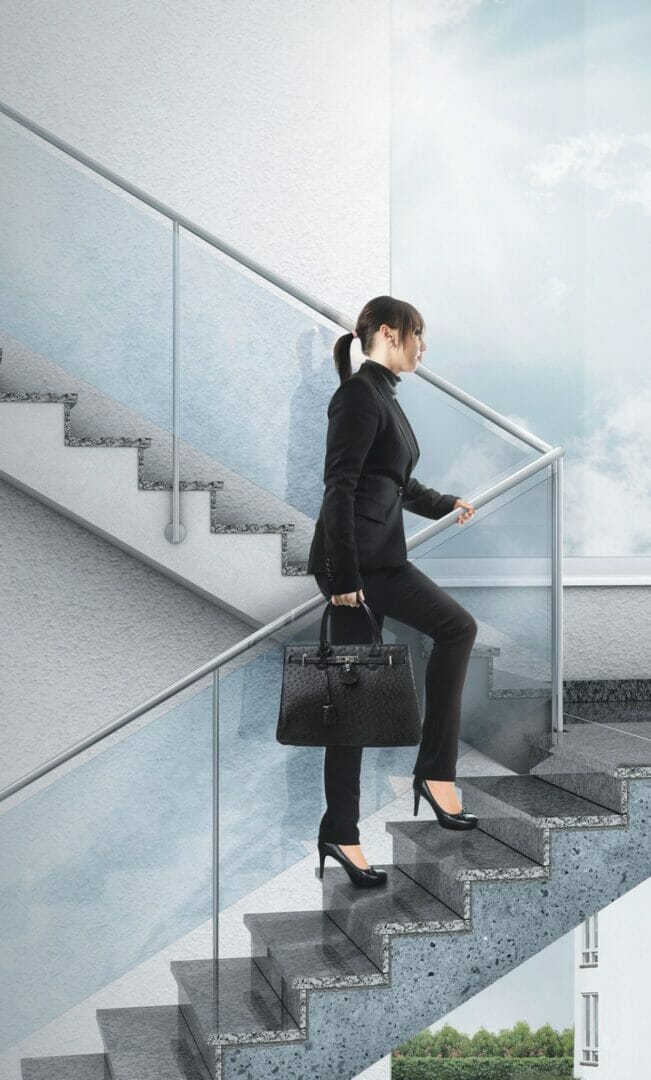
For comprehensive information about the Tronsole system contact Schöck on 01865 290 890; or visit the website at www.schoeck.co.uk The full Product Brochure is available. Also, online installation videos are available that demonstrate the individual steps for installing elements for both straight and winding staircases and landings.

